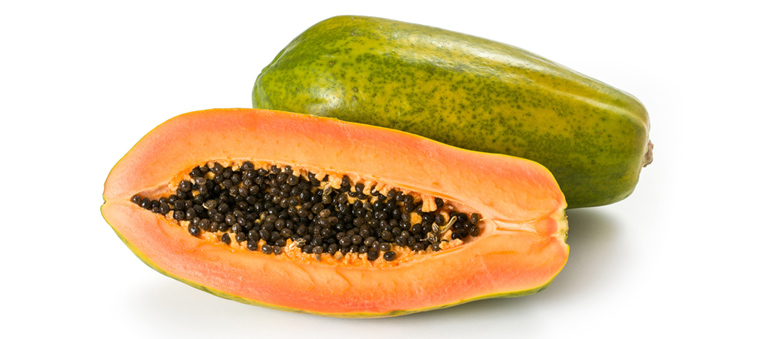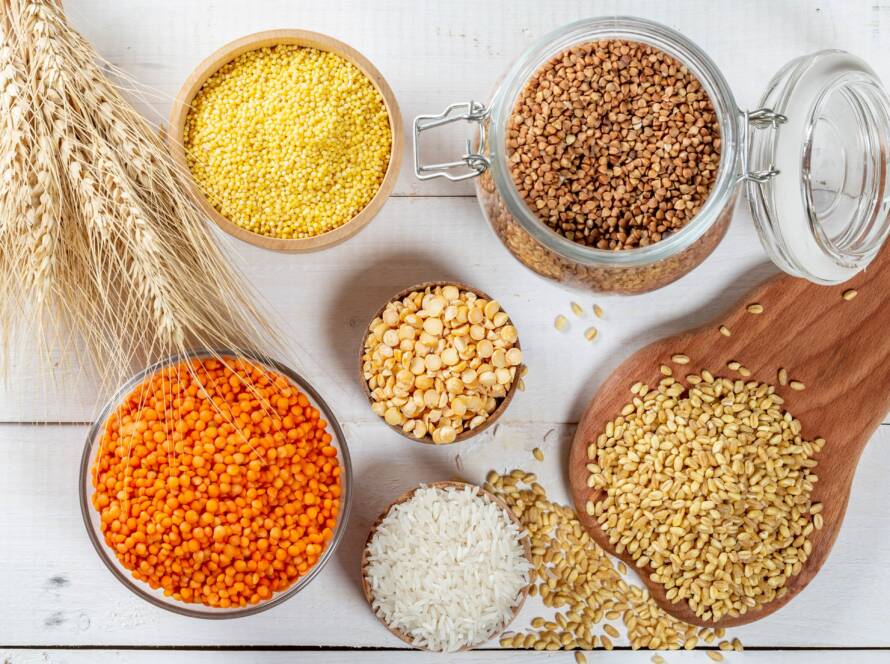Guava is a magical fruit and a powerhouse of nutrients. It is rich in antioxidants, vitamin C & A, lycopene, manganese and potassium. It is low in calories, packed with lots of fiber and makes for a great addition to everyday diet.
Health Benefits
Digestive Health
Guava is highly beneficial for digestive health and healthy bowel movement. It contains high amounts of dietary fiber than other fruits that help to bulk up and soften stool. Guava seeds, when ingested whole or chewed, act as excellent laxative.
Antibacterial & antimicrobial
The astringents in guava discourage bacterial and microbial growth in the stomach and intestines, keeping stomach infections, dysentery and gastroenteritis at bay.
Diabetic Friendly
High fiber and low Glycemic Index of guava, makes it a diabetic- friendly fruit.
Heart Health
Guava fruit helps improve the sodium and potassium balance of the body, thereby regulating blood pressure in patients with hypertension . It also helps to lower the levels of triglycerides and bad cholesterol (LDL), which contribute to the development of heart disease . This magical fruit improves levels of the good cholesterol (HDL).
Builds Immunity
Guavas are a rich source of vitamin C that play a vital role in improving our immunity and protecting us from infections.
Dental Health
Guava helps to prevent plaque causing bacteria from adhering to saliva coated surfaces, making it beneficial for dental health.
Antioxidant
Guava is highly rich in antioxidants like lycopene, quercetin, vitamin C and other polyphenols that neutralize the body of free radicals and is helpful in decreasing the incidences of degenerative diseases such as inflammation, heart disease, arthritis and cancer.
Vision Health
Guava helps to improve eyesight and vision health and also protects from developing macular degeneration and cataract.
Skin Health
If you are among the many looking to keep fine lines and wrinkles away from your face, then guava is the fruit for you. Guavas are rich in antioxidants which help to protect the skin from being damaged by UV rays and environmental pollution and various skin-related issues. Vitamin C keeps the collagen strong, making our skin look firmer.
Types of Guava
There are many different varieties of guava, with skin color ranging from yellow to pale green, and its flesh can be white, vibrant pink, or deep red.
Guava with pink flesh has bright yellow skin and pink flesh. The pink color is due to carotenoid lycopene. It is less sweet but has a stronger scent, possesses more water, less sugar, less starch, less vitamin C, and less seed. It can sometimes even be seedless.
White guava, on the other hand, doesn’t have enough carotenoid to have its overall color affected. It is moderately sweet. It has more sugar and starch, has plenty seeds, and more vitamin C.
Hybrid guavas which are extremely big in size (may even weigh up to 1 kg) are also available in market nowadays. It has less seed, thick pulp, suitable for long distance transport and has longer shelf life.
Before ripening, guava fruit is green, hard and sticky within, and is sour in taste. When ripe, it exudes a strong, sweet odor, and it becomes sweeter in taste.
How to consume
The whole fruit of the plant is edible. The fruit can be eaten raw both unripe as well as ripe based on individual taste preference. Fruits are sliced and used as salads or desserts. Jams, jellies, and juices can also be prepared from the pulp of the fruit. It is important to eat the peel and the flesh just underneath its outer thick rind, as this portion contains exceptionally high levels of vitamin C.



